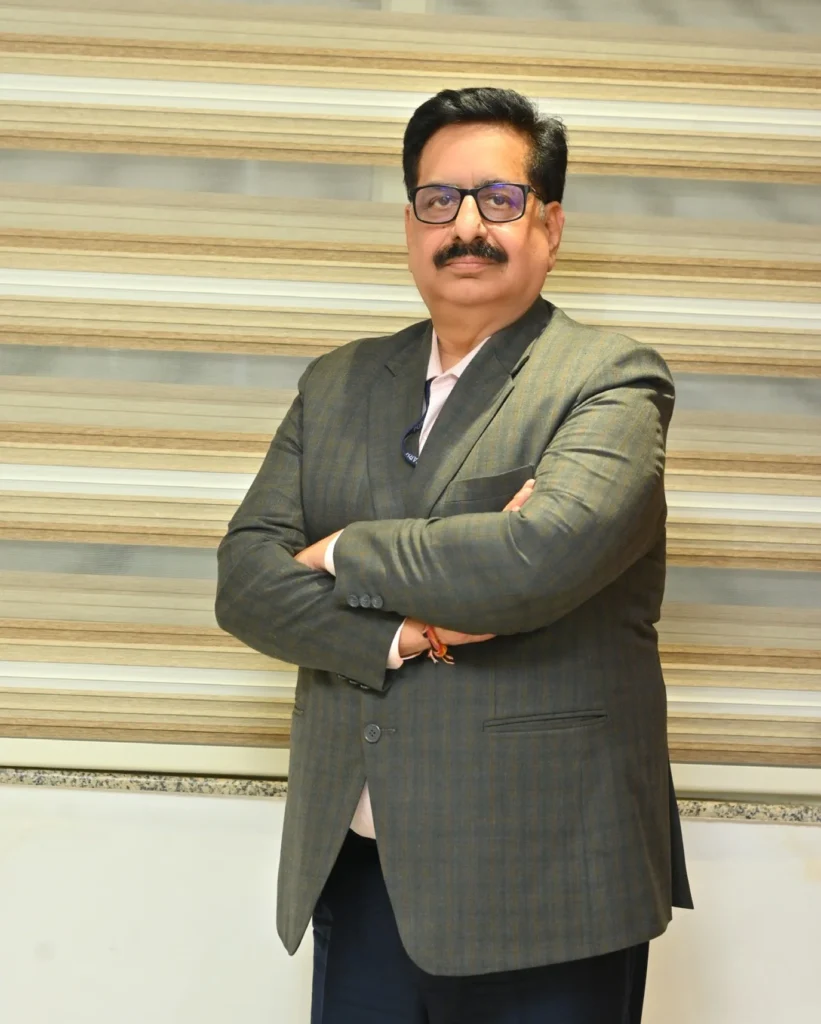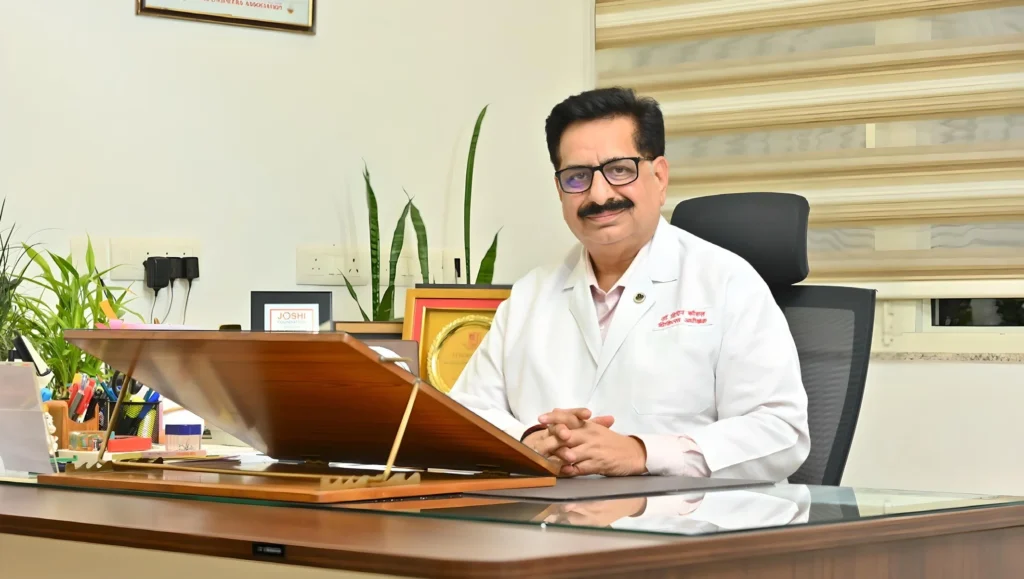Prof (Dr) Vipin Kumar Koushal PGIMER, Chandigarh
The hospital administration has become a significant talking point post-COVID-19 pandemic. The sudden emergence of the deadly virus brought to light the unpreparedness of hospitals worldwide! Now, post the pandemic, numerous changes are being mooted in the hospital administration arena in India. Here is an interesting conversation with an able administrator in the healthcare sector of India- Dr Vipin Kumar Koushal, Professor & Head of Hospital Administration-cum-Medical Superintendent, PGIMER Chandigarh, a medical luminary (known for his people-friendly approach, positive outlook and professionalism) who gives an insight in this column into the latest moves in hospital administration.
What changes have occurred in PGI post-COVID-19 regarding managing crisis situations and critical care for sudden outbursts of infections?
During the pandemic, a building was dedicated to COVID-19 care in PGIMER Chandigarh. Due to the consistent efforts of the whole team, not a single staff member in our hospital got infected while serving the people. It was not just the visible challenges but taking care of our human resources, which was a more significant challenge. All the efforts were made to protect the staff from contracting COVID-19 so that they could serve patients in the best possible manner. Many alterations and innovations were made in the building, and we also did numerous activities to ensure that the staff remained de-stressed and worked well under pressure.
Under our current leadership in India, emphasis on creating more critical care units post-COVID-19 is there to ensure that we are prepared for any emergent situation in future. Hospitals have been directed to develop such critical care segments, and in PGI Chandigarh, a 220-bed critical care hospital is underway to work in this direction. The lessons learnt during the pandemic are not forgotten; instead, we are constantly focusing on preparedness for the future.

What significant challenges are faced in hospital administration, particularly in the public sector?
The most critical challenge is resource management. In a country as diverse as India, efficient resource management is essential for hospitals to provide not just health care but quality health care. This includes not just physical infrastructure and a neat, clean environment but also optimizing the allocation of human resources such as doctors, nurses and support staff. Other challenging areas include regulatory compliance, quality assurance, technology upgradation, patient experience, healthcare access, emergency preparedness and data security. At the macro and micro levels, we are trying to address all these aspects in PGI Chandigarh to ensure we keep pace with the changing times.
Is there any integration of Artificial Intelligence and Hospital administration being mooted? What other technological advancements are being adopted?
We are already preparing to integrate AI into hospital administration with changing times. Areas like telemedicine and diagnosis are stronger beneficiaries of AI, and we have faculty members in PGI who are working in this direction.
We are working closely on Health Information Systems, including electronic health records and the sharing of patient health information across different healthcare settings. This innovation streamlines clinical workflows, enhances care coordination, reduces medical errors, and improves patient outcomes.
Recent advancements like robotic surgery have already been introduced in certain departments, and automated medication dispensing systems are being executed. Drone technology is being adapted to cater to the patients in rural areas. All this will tremendously help us cater to the rural population and take healthcare to the next level.
What is the specific move towards going digital in PGI Chandigarh?
Our Endeavor is to go paperless in PGI soon. Although it’s a challenging task since the influx of patients is enormous, about 10,000 to 12,000 per day, significant steps are being taken. The reports of tests will automatically come to the notice of the concerned team of doctors. Advanced Eye Centre and other departments are already working in this direction.
What would you like to tell the new generation of young doctors?
One must handle situations with a more humane approach. Good communication skills are an absolute necessity today. Nobody comes to a hospital in happy circumstances. Healthcare professionals should believe that ‘the patient is always right’ and manage their patients empathetically and humanely.
What is your professional aim for the near future?
I aim to do some good work each day. Every day is an achievement if it has been spent doing something positive and valuable. It gives me tremendous satisfaction, and I feel peaceful when I contribute positively.
What are your hobbies, and how do you de-stress yourself?
Music and dance are my favourite hobbies. I relish good food, and I enjoy cooking food too! I like meeting people and staying connected with my friends. It is essential and an excellent idea to remain connected with our old friends. In addition, I want to stay updated on the latest advancements in my field.
A More Humane Approach in Government Hospitals
” One must handle situations with a more humane approach. Good communication skills are an absolute necessity today. Nobody comes to a hospital in happy circumstances. Healthcare professionals should believe that ‘the patient is always right’ and manage their patients empathetically and humanely.



